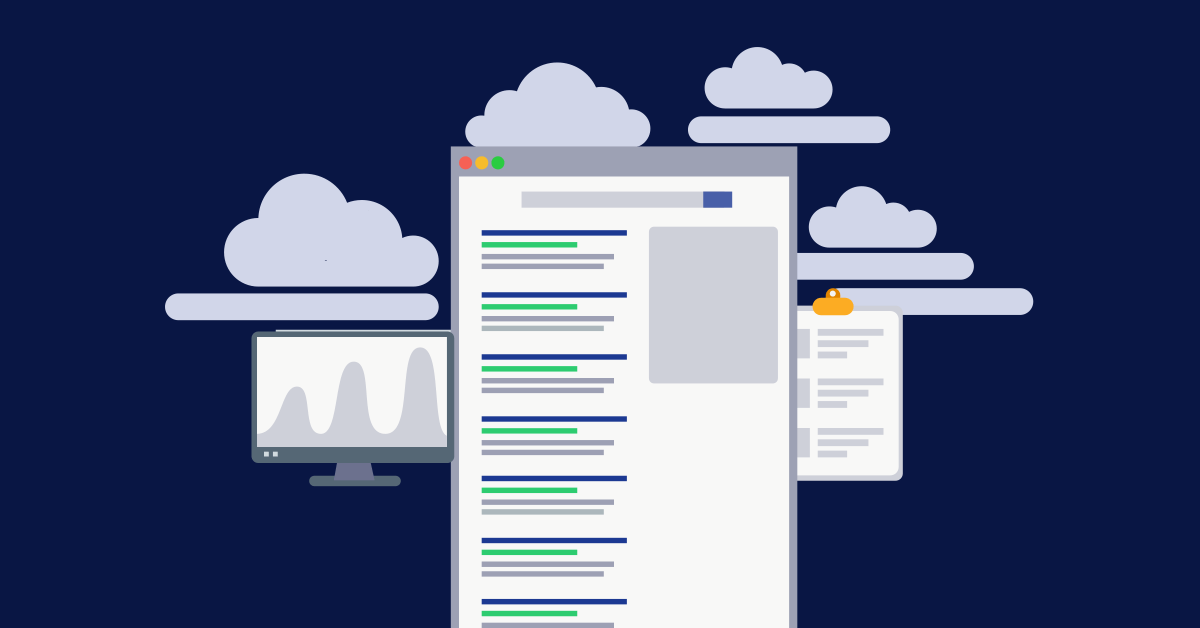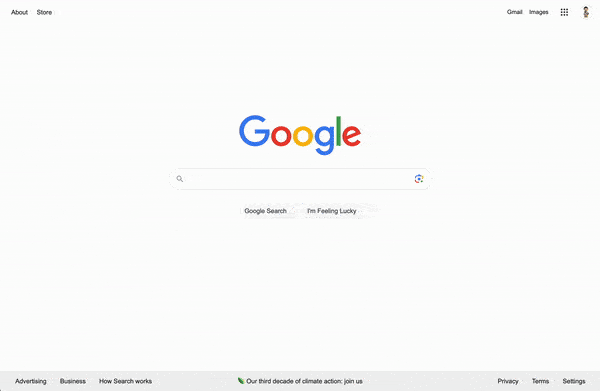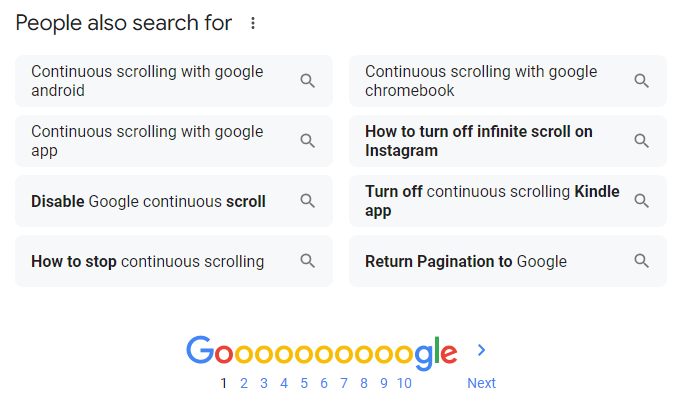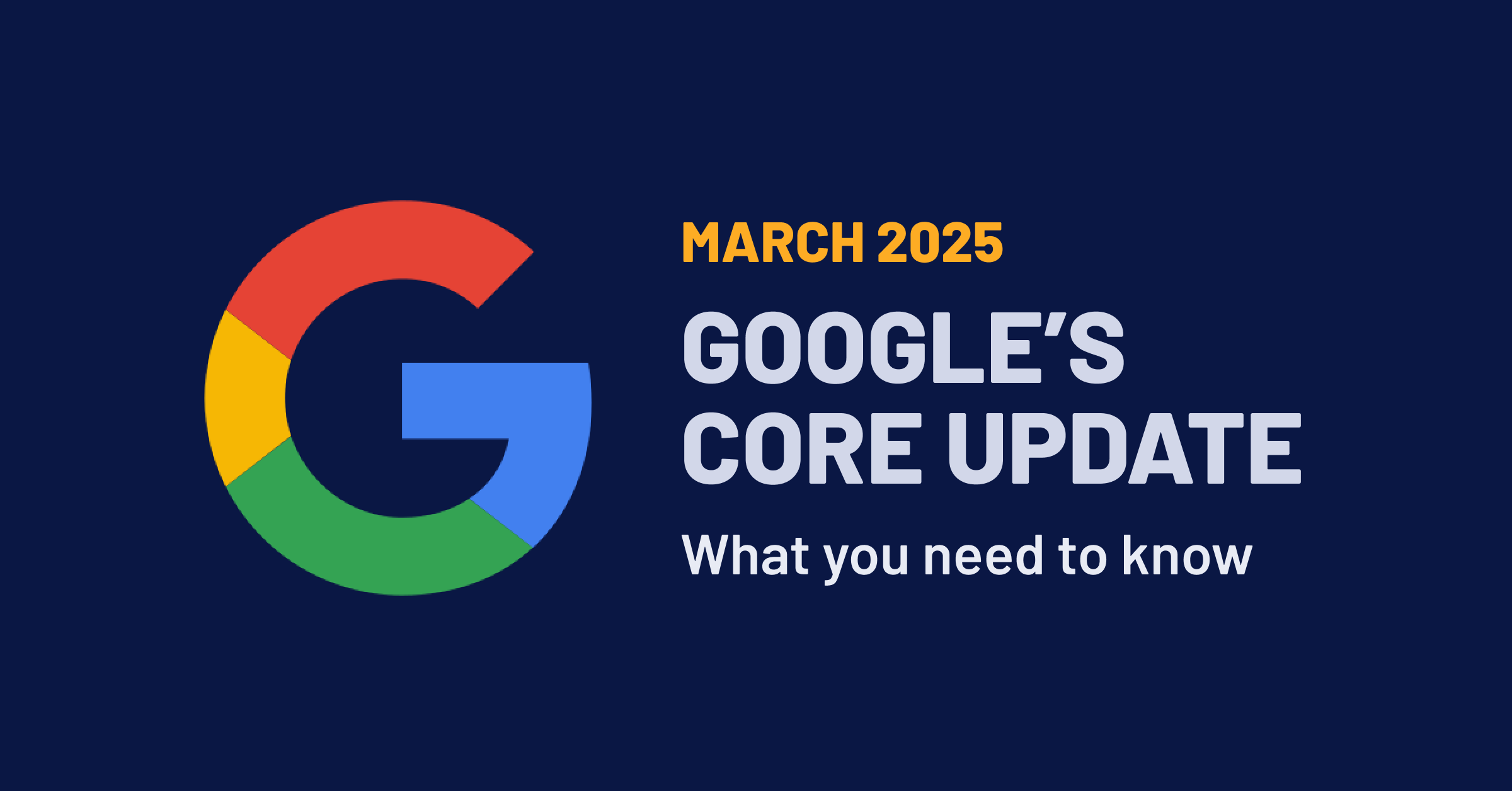
Key Takeaways
-
- Starting in late June, Google will begin turning off continuous scrolling for its Search Engine Results Page (SERP)
- This will affect both desktop and mobile experiences
- Continuous Scroll originated about 2.5 years ago as a user-based test, and Google concluded that automatically loading more results did not lead to higher user satisfaction
- Traffic patterns for organic search and potentially paid search could be affected, though nominally
- A robust content-based approach to organic site content remains recommended, regardless of this change to the SERP experience
Google is Dropping Continuous Scroll
According to a Google spokesperson via Search Engine Land, starting in late June, Google will begin turning off continuous scrolling for desktop search results and will remove it from mobile search results in the next month or so.
The continuous scroll is when the user continually scrolls down the page, and surfaces result in the SERP instead of pagination when the user must manually click to the next page of search results.
Google launched continuous scrolling on mobile search in October 2021 and on desktop search in December 2022, making it only approximately 1.5 years old for desktop search and approximately 2.5 years old for mobile.
According to Search Engine Land, Google claims that the intention of this reversion is to serve search results faster on more searches rather than automatically surfacing search results the user didn’t explicitly ask for. According to Google, automatically loading more results didn’t lead to any notably higher user satisfaction.
Continuous Scrolling vs. Pagination: What Are They?
With continuous scrolling, the user does not have to do anything but continue scrolling down the page for new search results to surface.
(Source: SERoundTable, Search Engine Land)
With pagination, the user must manually click on the “next” button (or “more results” button on mobile) to get to page 2 (and more) of the results.
Potential Effects
It’s possible that a website ranking on page 2 or further will receive less traffic due to this update. This is because users will have to manually click on the “Next Page” button to view the next page rather than Google automatically surfacing page 2 and onward results as the user scrolls in search of their desired information.
The extent to how much traffic would drop off is still being determined. In theory, users are likelier to stumble upon page 2 and onward results that they wouldn’t manually search for otherwise.
In practice, it is difficult to say without complex data what the quality and search experience of these “incidental”/”stumbled upon” search traffic is like. Users may continue to skip search results so long as they are not the content they are searching for, no matter if they are automatically surfaced for them or not, so the impact on a site’s search traffic may be minor if most of the traffic gained from continuous scrolling was “incidental” traffic.
For Businesses and Brands
This means that impressions and traffic could decrease incrementally with the removal of “incidental” users. On the other hand, if traffic is gained from content that ranks outside of page 1, it is possible that traffic may be more valuable, given that users have searched further for their selected content.
Also, no matter the view for scrolling, it remains paramount to have SEO services that focus on quality content that maximizes conversions by attracting the most qualified online audience possible. By focusing efforts on high-quality content, websites can build engaged traffic rather than casual scrollers who primarily stumble upon the site by chance rather than intention.
It will also be interesting to see how Google’s Paid efforts are affected by this change. Given the need for continued interactions to gather additional information, it is possible that paid impressions could also be affected. These effects remain to be seen and will likely play out further over time.
Stay Ahead of Google’s Changes with Overdrive Interactive. Contact us today to learn how we can help your business thrive in the evolving digital landscape!







